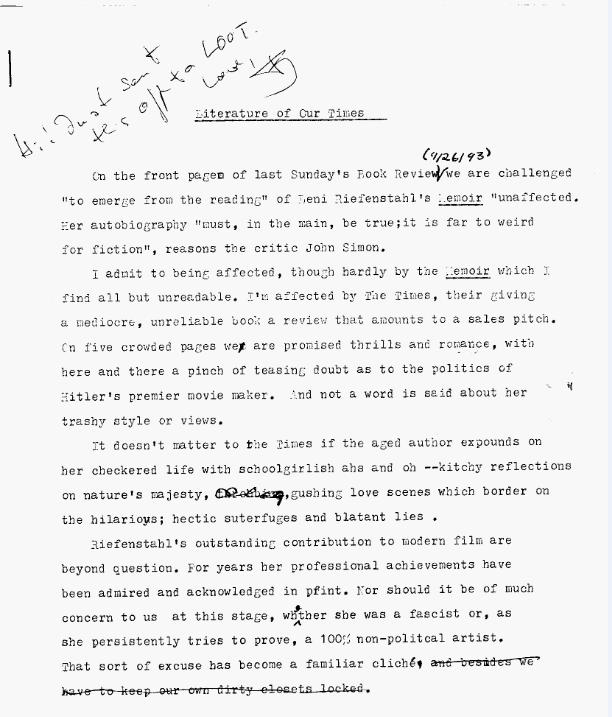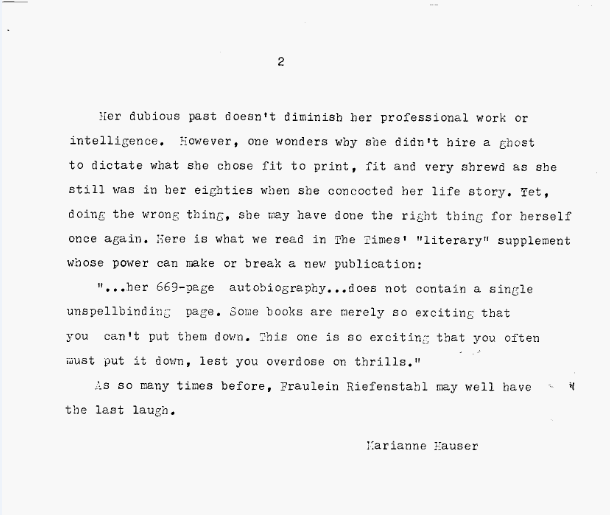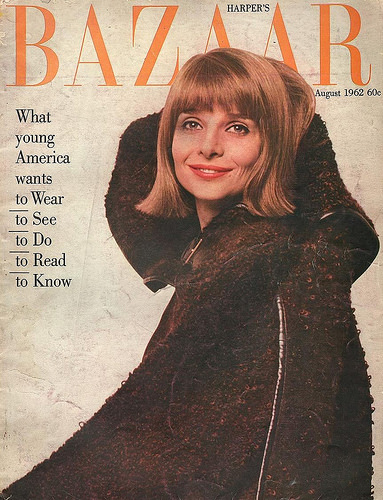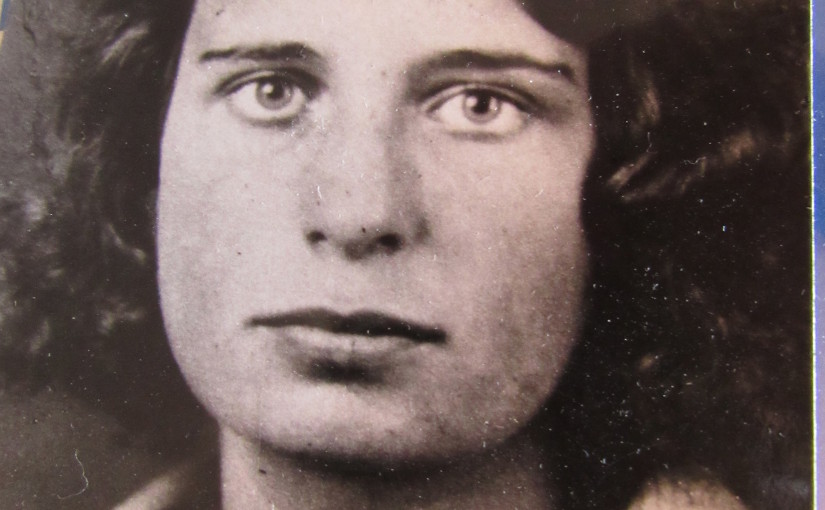Marianne Hauser was born in 1910. Her early life was shaped by the two world wars: her earliest memories are of Strasbourg in the teens, her sister’s death, her father’s working in a German munitions plant, marching off to the bomb shelters singing the song, Allons Enfants, smuggling eggs. In her few autobiographical writings World War 1 is both tragic and a caper, an event that divided the loyalties of her relatives. Her family was German. But they lived as Alsatians, the only identity she embraced her entire life. In the story Allons Enfants her uncle is a member of an underground organization in favor of Alsatian independence. The duality, or tripling of identity informed her work. World War 2 on the other hand, and the Nazis, has no aspect of the caper about it. Hauser loathed the Nazis and was deeply disturbed by her father’s decision to move to Germany in the twenties, and remain until his death in the forties. Her mother died in the forties too. She did not see them after the late thirties, perhaps 1937 or ’38. At some point in those years she skied with her father in Switzerland, and saw her mother in Paris. Her husband, Fred Kirchberger, escaped the Nazis and joined her in America. His brother, Hermann, had married Eva Hauser, Marianne’s younger sister. They are listed as holocaust survivors. I have been able to learn very little about them, even from Michael Kirchberger. The fact is Marianne and Fred were not interested in discussing the past. Yet in the 30’s, in New York, Hauser lectured on the threat of Nazism, addressing church and civic groups. Her beat as a reviewer was the war. The vast majority of her NYT book reviews are of books dealing with Fascist Europe. The same is true for her Saturday Review pieces. I haven’t seen the New York Herald Tribune reviews, but I suspect the same is true there. These were written in the early forties.
Her fiction is full of references to Nazis, fascism, the police state, and often, a character who meets a German and calls him a Nazi. Here is a piece Michael Kirchberger sent me. It is about a review she read in the New York times of Leni Riefenstahl’s autobiography. I don’t know if it was ever published.


Tag: Allons Enfants
Allons Enfants

This is the cover of the August, 1962 Harper’s Bazaar where Allons Enfants first appeared. Allons Enfants is one of two autobiographical stories Hauser wrote, set in Strasbourg during World War 1. It narrates the death of her sister Dora at age 17 of meningitis and is delirious with detail of her family and the city. It also appears in her first collection of short stories, A Lesson in Music (University of Texas Press, 1964) and is currently in print: The Collected Short Fiction of Marianne Hauser (FC2, 2005). Alice S. Morris, her close friend, was the literary editor at Harper’s and was renown for the fiction she published.
